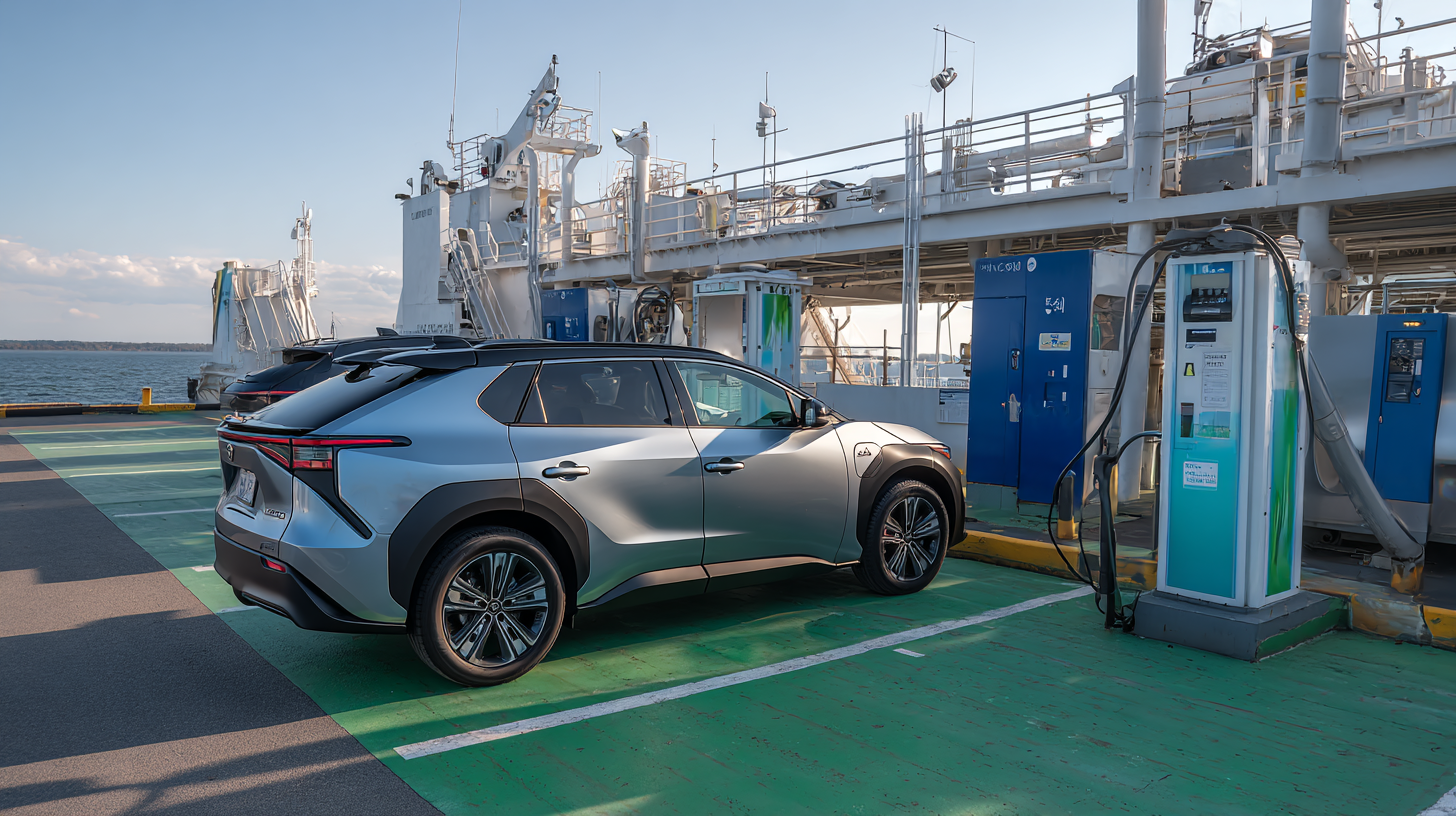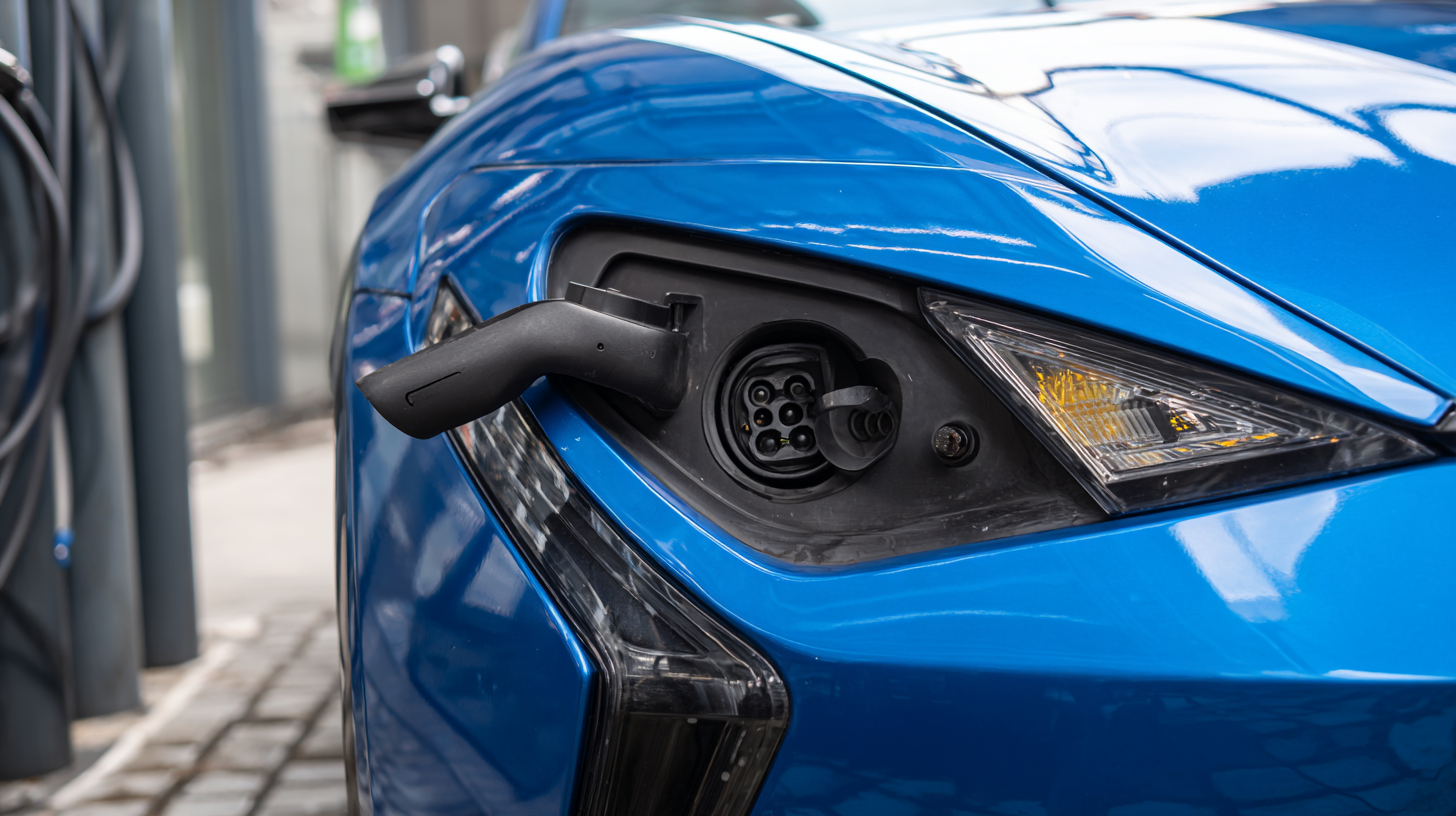The global electric vehicle (EV) market is experiencing unprecedented growth, driven by increasing environmental concerns and government mandates aimed at reducing carbon emissions. According to a report by the International Energy Agency (IEA), the number of electric cars on the road surpassed 10 million in 2020, and this figure is expected to continue climbing as infrastructure improves.
 Central to this expansion is the demand for reliable EV charging solutions, particularly the Ev Charger 240v, which provides faster charging times and enhanced efficiency for electric vehicles. As international trade shapes the growth of this sector, understanding import-export certifications becomes crucial for manufacturers and distributors. This guide delves into the essential certifications and regulations needed to navigate global trade in EV charging infrastructure, ensuring compliance and promoting successful international business strategies.
Central to this expansion is the demand for reliable EV charging solutions, particularly the Ev Charger 240v, which provides faster charging times and enhanced efficiency for electric vehicles. As international trade shapes the growth of this sector, understanding import-export certifications becomes crucial for manufacturers and distributors. This guide delves into the essential certifications and regulations needed to navigate global trade in EV charging infrastructure, ensuring compliance and promoting successful international business strategies.
Understanding the technical specifications of 240V EV chargers is crucial for both consumers and businesses looking to enter the electric vehicle market. These chargers play a pivotal role in efficient EV charging, providing faster power delivery compared to standard 120V options. A comprehensive analysis of the specifications reveals key aspects such as charging speed, amperage, and connector types, which are essential for optimizing the charging experience. For instance, a 240V charger typically offers a charging rate of up to 30 amps, enabling a full charge for many electric vehicles in a fraction of the time compared to lower voltage chargers.
Additionally, it is essential to consider the compatibility of these chargers with various EV models. The EV industry features several connector standards, including the J1772 and Tesla's proprietary connector. Understanding these standards ensures that consumers can select the right charger for their vehicle while businesses can cater to a wider audience. By reviewing the technical specifications and staying informed about advancements in charging technology, manufacturers and distributors can better position themselves in the competitive electric vehicle market, ultimately contributing to the growth of sustainable transportation solutions.
| Certification Type | Region | Voltage Specification | Safety Standards | Environment Standards |
|---|---|---|---|---|
| UL Certification | North America | 240V AC | UL 2594 | UL 991 |
| CE Marking | European Union | 240V AC | EN 61851 | IEC 62196 |
| CCC Certification | China | 240V AC | GB 31231 | GB/T 18487 |
| RCM Mark | Australia/New Zealand | 240V AC | AS/NZS 60950 | AS/NZS 4777 |
The electric vehicle (EV) charger market is poised for significant growth, driven by the rapid increase in electric vehicle adoption worldwide. According to a report by Allied Market Research, the global EV charger market was valued at approximately $3.5 billion in 2020 and is projected to reach around $30 billion by 2030, growing at a CAGR of over 25%. This surge is fueled by the rising demand for environmentally friendly transportation and government incentives aimed at promoting electric vehicle usage.

Factors such as advancements in charging technology and the expansion of charging infrastructure are also critical to this growth. The International Energy Agency (IEA) reported that the number of public EV charging points reached over 1.3 million in 2020, with significant investments anticipated in charging station networks. As more consumers opt for electric vehicles, the need for efficient and accessible EV charging solutions is becoming increasingly essential, making this a lucrative industry for import-export businesses focused on high-quality products like the 240V EV chargers.
Navigating the intricate landscape of import and export certifications for EV charging equipment is crucial for manufacturers and distributors aiming to thrive in the global market. According to a recent report from Navigant Research, the global EV charging equipment market is expected to reach $27 billion by 2030, underscoring the increasing demand for high-quality charging solutions. However, to access various international markets, compliance with local regulations and certifications is paramount. For instance, in the European Union, devices must adhere to the CE marking requirements, ensuring they meet essential safety and environmental standards.

Moreover, different regions may have specific certifications that are critical for market entry. The UL certification in the United States is one such standard that verifies the safety of electrical devices, which is particularly pertinent as 62% of consumers express concerns over the safety of EV charging equipment, according to a survey conducted by the Electric Vehicle Institute. Understanding these certifications not only helps in ensuring product safety but also enhances trust among consumers, facilitating smoother transactions in the competitive field of EV charging systems.
When exploring the best 240V EV chargers, it's essential to understand the top five types available in the market. Each type offers unique features and benefits, catering to various user needs.
Level 2 chargers are the most common choice, allowing for faster charging at home or public stations. They typically deliver 240 volts and can fully charge most electric vehicles in just a few hours, making them convenient for daily use.
Another promising option is the smart charger, which integrates Wi-Fi and mobile app connectivity, enabling users to monitor and manage their charging sessions remotely. These chargers often come with energy optimization features, helping to reduce electricity costs. For commercial applications, DC fast chargers offer rapid charging capabilities, ideal for public charging stations where time is of the essence.
Tip: When selecting an EV charger, consider the charging speed, ease of installation, and warranty features to ensure the best investment. Additionally, check for compatibility with your vehicle's make and model. Regularly updating firmware on smart chargers can enhance their efficiency and security, maximizing the benefits they offer.
When sourcing and distributing EV chargers globally, understanding local regulations and market demands is paramount. Each country has its own certification standards for electrical devices, including EV chargers. Before entering a new market, manufacturers and distributors should engage with local authorities to ensure compliance with safety and performance standards. Building relationships with local regulatory bodies can streamline the certification process, helping to avoid delays and ensuring that products meet the necessary criteria before they hit the shelves.
Another best practice is to leverage partnerships with reliable logistics providers. Efficient supply chain management is critical in the fast-evolving EV market. Collaborating with partners who have a deep understanding of international shipping regulations and tariffs can significantly reduce costs and transit times. Moreover, staying informed about technological advancements and shifting consumer preferences can guide sourcing decisions, enabling companies to offer innovative products that meet the demands of eco-conscious consumers worldwide. Through careful planning and strategic partnerships, businesses can effectively navigate the complexities of global trade in EV chargers.








